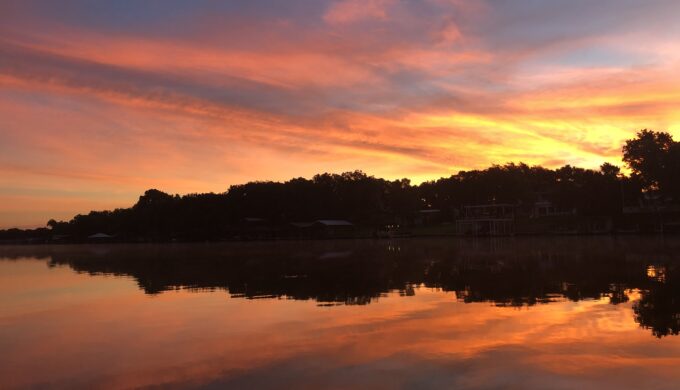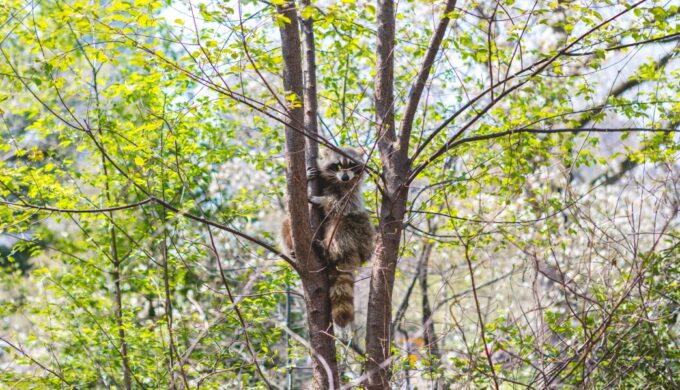Malcolm Long was here in the Kingsland area several years before the lake which borders and defines modern-day Kingsland. In fact, the Long family has been living on a ranch along the Llano River ever since the “Indian Days,” and in 2012 Malcolm Long remembered clearly the time before Lake LBJ filled the Llano River valley just downstream from where he grew up.
Malcolm Long’s great-great grandfather, Jim Long, was the original owner of the cattle ranch beside the Llano River. The family’s first home was a rustic log cabin, and the ridge along the west side of the Colorado River was named Long Mountain in their honor. Jim’s son, Jack Long, inherited the land and built a two-cylinder water-powered pump to irrigate the pasture. He then passed the property along to his son, Doke, who built a wood frame home for the family and opened a fishing camp down by the river around 1900. One of the old cabins has an inscription dated 1904; it says, “Caught one big one, got 50 mosquito bites!” Doke’s son, Sherman Lee Long, was Malcolm’s father. He used to ride his horse to the old school in Kingsland. When he inherited the ranch, he tore down the old wood-frame house and built a rock house around the original log cabin.
Malcolm Long’s childhood included some of the very leanest years in Kingsland’s 130-year history. He was born in 1942, five years after the completion of Buchanan and Inks Dams (on the Colorado River just upstream from Kingsland) and at the middle of World War II. Kingsland’s old school closed down just before he was old enough to attend, and he would ride on a school bus down the old county road by the river to Llano. By the time he was ten, he recalls riding his bicycle down the dirt road to Fuzzy’s Corner, an iconic bar in the town of Buchanan Dam, because “there was nothing in Kingsland.”
Actually, there were a few old buildings left in the shrinking community. The Antlers Hotel was an overgrown, usually-empty retreat owned by the Barrow family; there was a little store, the post office, and a gas station (run by Malcolm’s uncle, Jim Long) on Chamberlain Street, a big old house where Wells Fargo Bank is now, and another gas station across the highway. Malcolm’s father told stories of a cotton gin where Dairy Queen is situated today and a slaughterhouse across the creek where beef would be packed in sawdust and ice for shipment to Austin, but those buildings were gone before Malcolm was born.
Photo: @deanalane560 via Twenty20
Malcolm recalled a time before Lake LBJ was formed, when he was “five or six years old.” His father drove his pickup into the now-submerged riverbed to get a load of sand. The pickup got stuck, and it took two teams of horses belonging to local rancher Neal Wood to pull them out. When the Granite Shoals Dam was completed, Malcolm went with his father to the dedication ceremony.
Another early memory of the river is the abundance of willow trees along the banks before 1957. “There was a lot more foliage then,” he recalled. That year, an extended drought ended abruptly with a devastating flood. The willows were knocked down, never to return. Malcolm also reported that both ends of the automobile bridge were washed out by that flood. The railroad bridge was six feet higher and escaped relatively unscathed.
One of the few things Malcolm had done in Kingsland was to hunt ringtails on Neal Wood’s ranch. He was watching as earth-moving equipment leveled the property in 1964 for the Highland Lakes Bank and Shopping Center, and recalled that “raccoons and ringtails were running in every direction.”
To Malcolm Long, the construction of that shopping center was the major turning point in the history of Kingsland; before he went off to college, it seemed that there was hardly any development in Kingsland. Ever since the shopping center was built, the community has grown steadily.
Photo: @jenni.heller via Twenty20
Malcolm’s father and mother both died in 1983; Malcolm soon got out of the cattle business and leased most of the property to a neighboring rancher. He then focused more attention on the fishing camp and opened some of the property to arrowhead collectors and prospectors.
Long’s Fishing Camp symbolized the old way of life in Kingsland; the old county road was closed, and there was no outside traffic; the unspoiled stretch of Llano River, the unobstructed views of Packsaddle and Long Mountain, the relaxed atmosphere of the camp, and the colorful personality of its owner all helped to make the unique destination into a local legend. Many fish were caught there, many arrowheads (and a few gold flakes) were found, and a multitude of memories were made. The history of Kingsland is richer because of Malcolm Long’s family and their beautiful ranch.
Read chapter one here and chapter two here. Read chapter four here.





